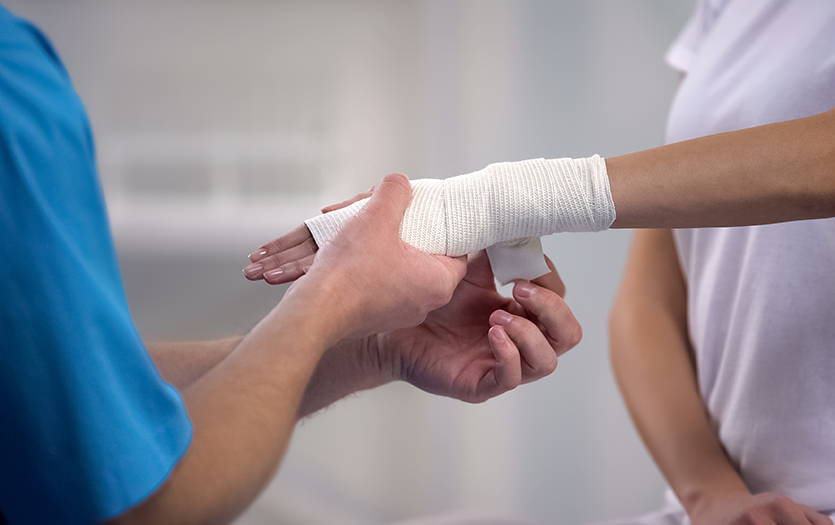
This post was written by Brooke Randol, MSN, RN, AGCNS-BC, CWS, CMSRN, clinical nurse specialist, Parkview Health Centers for Wound Healing.
Despite the unexpected nature of minor cuts or injuries, they are common occurrences in daily life. Simple first-aid or a visit to a walk-in clinic suffice for most cases. However, deep cuts or wounds that don’t heal as anticipated, may require additional attention. In this post, we cover when to see a wound care specialist, who may be at risk for chronic wounds and effective treatment options.
What is wound care as a medical service/specialty?
Wound care is a multi-disciplinary service that specializes in diagnosing and treating acute and chronic wounds and managing ostomies. Parkview Centers for Wound Healing help people by investigating how and why the wound happened while working alongside other specialties to correct the underlying cause and enhance healing. Wound care includes both inpatient and outpatient services, meaning we see patients while they are in the hospital and in the office setting.
The most common types of wounds we treat include:
-
Venous leg ulcers associated with leg swelling.
-
Pressure injuries over bony prominences.
-
Diabetic ulcers of the lower leg or foot.
-
Traumatic wounds resulting from an injury.
When would someone need to see a wound care provider?
Those who have a chronic wound, meaning it hasn’t healed in 30 days, should be seen by the Wound care team. Individuals with acute wounds such as non-healing or re-opening surgical incisions, large traumatic wounds or infectious wounds could also warrant Wound care services. Patients with new or established ostomies should visit the ostomy clinic to ensure access to resources and improve living with an ostomy. The ostomy clinic and wound clinics will order dressing supplies that may be covered by insurance plans.
Who is most at risk of a wound that won’t heal?
Delayed wound healing can lead to an increased risk of infection, prolonged discomfort or potential tissue damage. Individuals living with diabetes and those who experience reduced sensation like neuropathy, paraplegia or quadriplegia are at a higher risk of developing wounds and experiencing slower healing.
Additional factors that contribute to non-healing wounds are:
-
Impaired nutrition
-
Being overweight or underweight
-
Autoimmune disorders or being immunosuppressed.
Individuals at risk for delayed healing should seek prompt medical attention to optimize healing outcomes.
What are the most common wound care treatments?
Utilizing a moist wound healing approach has been proven to facilitate a quicker recovery. Advanced dressings that remain in place for several days promote healing without disrupting the wound bed and require fewer dressing changes. Our wound clinics also offer advanced treatments for non-healing wounds including hyperbaric oxygen treatment, advanced skin products, negative pressure wound therapy and casting.
Learn more about how to dress a wound in this video.
Leg ulcers accompanied by swelling commonly require compression wraps to control edema (swelling caused by fluid retention) and help heal the wound. Following recovery, compression stockings must be worn to prevent wound recurrence.
Offloading, removing or redistributing the pressure on the wound is recommended for pressure injuries and diabetic foot wounds. Pressure injury healing may require specialty beds, cushions and frequent movement to avoid lying in the same position for more than 2 hours. This could include a rigid cast, walking boot, crutches or a knee roller. Once healed, diabetic shoes and inserts are essential in keeping the wounds from returning.
Patients or caregivers who are tending to wounds at home should prioritize keeping them clean and covered and adhere to dressing change schedules and treatment recommendations from their providers. Consuming a balanced diet while increasing protein and nutrient intake will promote efficient healing and reduce the risk of infection. Individuals with diabetes should maintain stable blood sugar levels.
Final thoughts
Healing acute and chronic wounds requires proper care and attention. The Parkview Centers for Wound Healing are focused on helping you recover so you can get back to the things you enjoy. Outpatient wound clinics do not require a physician referral. If you are dealing with a chronic wound or need additional information and support, contact any of our four locations for help.




